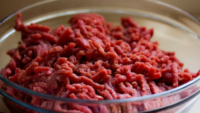FAO Hosts Global Meeting of Cell-Based, Precision-Fermented Food Stakeholders to Discuss Food Safety Aspects

Image credit: donauwood via Pixabay
On November 6, 2023, a stakeholder roundtable meeting organized by the Food and Agriculture Organization of the United Nations (FAO) and the China National Center for Food Safety Risk Assessment (CFSA) was held in Shanghai, China to discuss the latest developments in cell-based food production and precision fermentation. Insights and experiences from developers and producers of cell-based and precision-fermented products were shared so that relevant food safety considerations could be updated, contributing to effective risk assessment for competent authorities.
Cell-based food refers to products that are developed by culturing cells isolated from animals, while precision fermentation is a process that uses microorganisms to produce specific food compounds and ingredients. In April 2023, FAO and the World Health Organization (WHO) published the first-ever global report on cell-based food safety, following FAO documents published in late 2022 that defined the relevant terminologies, processes, and regulatory frameworks for cell-based foods.
The November 2023 meeting featured 15 presenters from nine countries who shared insights about their cell-based food or precision fermentation products, their production processes, and the strategies they have implemented to ensure food safety. The meeting was attended by a total of 46 people including various Chinese government officials and researchers, in addition to the presenters from the private sector and organizers from across the world.
During the day-long meeting, a special session was held to focus on the topic of food safety dossier development for regulatory requirements. Presenters who have experience in developing such dossiers shared knowledge about what elements are contained in such documents, what food safety assessments are conducted, and how relevant data is presented in dossiers. They also discussed the levels of information included in the documents and offered practical suggestions for fellow producers planning to develop food safety dossiers.
Meeting participants underscored that, although regulatory processes and requirements among different countries and jurisdictions can vary significantly, essential food safety considerations can be consistent among competent authorities. Some regulatory agencies offer informal pre-submission consultation opportunities for companies with specific questions, and, in the stakeholders' experiences, such consultation sessions have been found useful for both regulators and industry to achieve positive overall outcomes for ensuring food safety.
The meeting also highlighted the key trends in cell-based food as of 2023, including the use of advanced bioreactors to facilitate upscaling, the development of low-cost food-grade media, and the availability of off-the-shelf approved inputs such as cell lines, scaffolds, and growth factors, among others.
Regarding precision fermentation, the discussion revealed that the field is experiencing significant growth. Specifically, precision fermentation is being used widely for a variety of food additives and processing aids. During the event, new developments in precision fermentation were discussed for the production of enzymes used for dough improvement for bakeries, as well as the production of myoglobin and gelatin to improve texture and other features of a variety of food products.
The meeting provided an opportunity for stakeholders to exchange knowledge and experiences at the global scale. Participants, including presenters and regulatory authorities, recognized that existing food safety assurance approaches can cover the majority of food safety issues for both cell-based foods and precision fermentation. Finally, the importance of transparent communication with the general public about food safety assurance mechanisms, for both the public and private sectors, was noted.
Looking for a reprint of this article?
From high-res PDFs to custom plaques, order your copy today!









